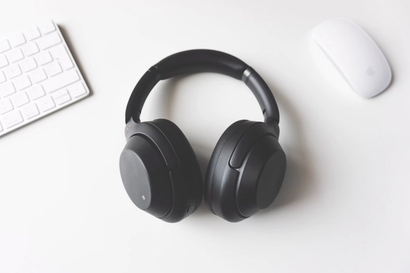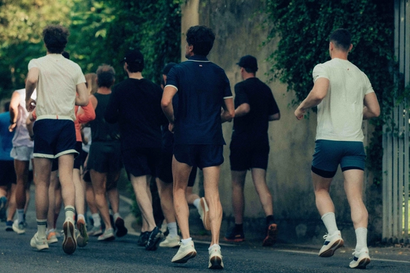If you’re serious about sculpting your summer body, then you’ll agree that nothing beats the feeling of a well executed workout – spending no longer than 1 hour sweating cardio and smashing weights over a five-day week.
However, if you fall into the bad habits of dragging your workouts longer than necessary, and slip into the routine of skipping frequent meals, coupled with a lack of sleep, you could be doing more detrimental harm than good.
But how do you know when you’ve exerted too much on your body? The signs may not always be obvious, particularly if you’re looking to either lose or gain weight – so we’ve listed the scientifically agreed-upon telltale signs that you need to know about, which may just push you to reassess your goals…
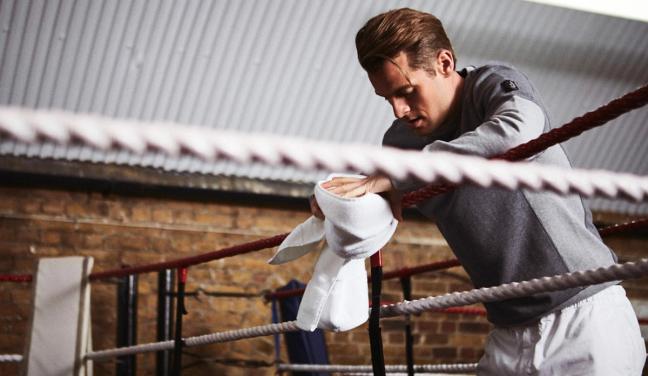
Photo by Josh Shinner for Gentleman’s Journal
Everyone knows that a good workout releases endorphins (a chemical your body releases to suppress pain and trigger a positive feeling in your body), so if you’re not getting that ‘feel-good’ vibe during and post workout, something is wrong. If your goals are gaining weight in the form of lean muscle, then you should seriously cut down on the cardio.
This is because your body mass index (BMI) and muscle mass index (MMI) need to be taken into account. In short, if you’re lean, there is no reason for you to spend more than 5 minutes running on a treadmill for a warmup – anything more should be for long distance runners.
The feeling of sickness simply means your body’s immune system is telling you that something is wrong – and that can be traced back to your pre-workout eating habit. To combat this, try implementing vitamins A and E, as well as glutamine – or better yet, carbohydrates which will slowly release the energy you require for cardio. The same applies if you’re aiming to lose weight, or ‘cut’ fat – never skip a pre-workout meal (we know this may sound combative to losing weight, but follow the proven advice).
This should come as a no-brainer, since feeling pain is your body’s definitive way to say something is very wrong. After a workout, you’re pumped with energy and endorphins, and you may feel like that you can continue doing more, but you’d be wrong. Recuperating your body is a vital as training, if you’re looking to gain muscle or lose weight.
You should also be mindful of reoccurring injuries, as this is a telltale sign that whatever you’re doing is actually causing more harm than good. A suitable solution would be to take forced rests between sets, rather than completing sets until failure. A suitable example would be to do the following:
5 reps of 65kg bench press. Rest.
10 reps of 50kg bench press. Rest.
15 reps of 40kg bench press. Rest.
Following a similar routine of increasing reps whilst declining weights in a set ensures you reach maximum muscle fatigue, without risking joint injury – which is a common problem when overexerting unnecessary rep counts with heavy weights. Similarly, if you notice your wrists straining as you increase your free weight tolerance, it’s worth investing in a suitable wrist wrap to help keep the right posture and minimise tendon damage.
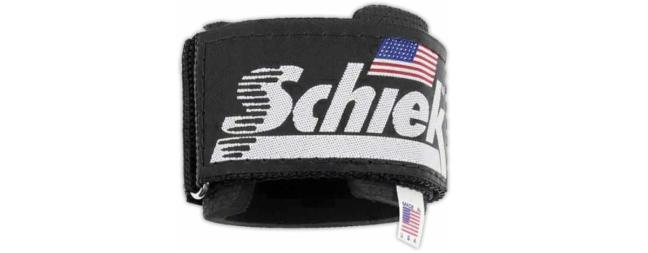

Photo by Josh Shinner for Gentleman’s Journal
A widely experienced problem with many training athletes is of course the plateau effect, where no matter how hard you push, or how hard you try for that last rep, you notice a slump in progress. Have you stopped gaining muscle despite your strenuous workouts? You’re probably damaging your already damaged muscles, so you need to stop, now.
For gym addicts, it may seem viable to workout twice a day (morning and evening), and whilst you may be training different muscle groups, it’s imperative that you’re getting the rest you need, otherwise you’re overtraining. Remember: muscles need a chance to repair, and that’s only possible when your body is given the proper time to rest and recover before being forced into more exercise.
Another important reason for the plateau effect is that you’ve succumbed to a mundane training routine that your body is quite frankly bored of. Whether your intentions are to gain lean muscle or cut fat, shocking your muscles is crucial to seeing results. Work on a different circuit, start with a high weight and work down, or simply pay extra attention to the muscles you’re not training and win back those results.
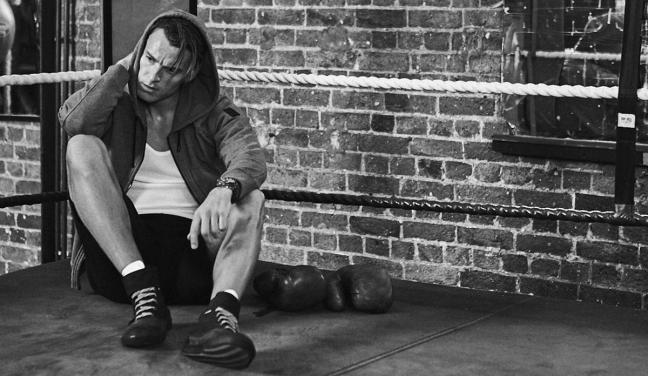
Photo by Josh Shinner for Gentleman’s Journal
Whatever your workout goals are, it’s always worth regularly monitoring your weight. This is the easiest way to understand how your body works, and if what you’re doing is good. If you notice a sudden drop in weight, you’re probably following an inconsistent diet vs. your intensive training.
Similarly, if you’re keeping or even gaining weight (not in the form of lean muscle), then this could be water retention caused by hormones released during overtraining – and this can be especially problematic when you’re restricting calories for fat loss. Namely, your testosterone levels can plunge while your cortisol levels rise, which causes a whole host of problems related to protein metabolism, insulin resistance, appetite, and more.
Waking up at 2a.m. more often than usual, despite breaking sweat at the gym? You’re probably overtraining, ironically, thanks to your hormonal system and nervous system overload. By focusing instead on sleeping during the crucial hours of 10p.m.to 2a.m., it has been scientifically proven to be your body’s primetime for restoration and muscle growth.
And if you experience insomnia during your intensive training regimen, then it’s also advised to take an entire week off training, whilst eating a lot of clean foods (that’s right, no more protein shakes, for now), so you’re body can fully restore itself and experience a better sleeping cycle.
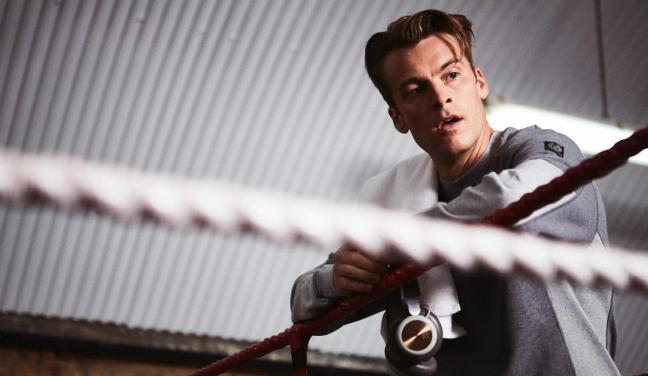
Photo by Josh Shinner for Gentleman’s Journal
Despite the obvious correlation of an increase in endorphins and ‘happy feelings’ during and after a workout, your mental health can spiral downhill if you’re overdoing it. If you start assuming that weight training is a space-filler, or that losing weight is the only priority goal, your mind will over exert itself and you’ll begin looking into the mirror with ‘body image’ issues.
Gaining muscle is great, but there comes a point when enough is enough (and the same goes for toning and losing weight, too). It’s also worth setting short and longterm gym goals and achieving them, which is mentally more stimulating and positive then scrambling to the gym every other day with no set goal, no direction and no notion of whether you’re doing well or not.
Depression when training can become a very serious issue, so it’s worth sitting back and assessing these other points and pinpointing what may be causing your mental upset. Also, no one wants you to become a moody, grunting gym goer, smashing weights just because you couldn’t reach the last rep – that’s just bad gym etiquette.
It doesn’t take a genius to put two-and-two together – an increase in physical activity requires an increase in water intake. Forgo what your peers may say that drinking during a workout is bad (it’s only bad if you’re running and jumping all the time), because your muscles need water. That ‘burning’ feeling you get when exercising is caused by lactic acid – which is water soluble, so the more hydrated you are, the less likely you are to feel a burn while you workout and cause lactic acid build up.
If you’re overtraining, your body might be in a catabolic state, meaning it’s starting to consume its own muscle for protein – which in turn naturally causes dehydration. This is an important factor that you may not even notice is happening to you. How do you combat this? Make sure you drink plenty of water throughout the day (not just during training) and get plenty of sleep.

Become a Gentleman’s Journal Member?
Like the Gentleman’s Journal? Why not join the Clubhouse, a special kind of private club where members receive offers and experiences from hand-picked, premium brands. You will also receive invites to exclusive events, the quarterly print magazine delivered directly to your door and your own membership card.
